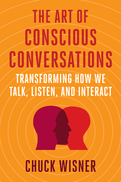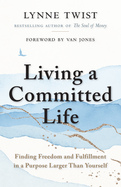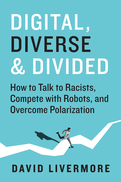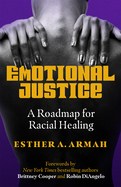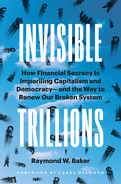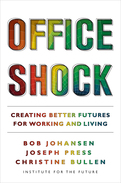Search Results: ""
Results 1207-1212 of 1358
Ditch the negative mental habits that derail conversations and destroy projects, and discover a framework for forging authentic, enduring, and productive connections.
We live in conversations like fish live in water-we're in them all the time, so we don't think about them much. As a result, we often find ourselves stuck in cyclical patterns of unproductive behaviors. We listen half-heartedly, react emotionally, and respond habitually, like we're on autopilot.
This book is a practical guide for thoughtfully reflecting on conversations so we can avoid the common pitfalls that cause our relationships and work to go sideways. Chuck Wisner identifies four universal types of conversations and offers specific advice on maximizing the effectiveness of each:
Storytelling-Investigate the stories we tell ourselves about ourselves and others
Collaborative-Explore the way our stories and other people's stories interact
Creative-See new possibilities and discover unforeseen solutions
Commitment-Make promises we know we can keep
These conversations unfold sequentially: our awareness of our and others' stories transforms our ability to listen and collaborate, which opens our thoughts to creative possibilities, guiding us toward mindful agreements.
Our conversations-at home, at work, or in public-can be sources of pleasure and stepping-stones toward success, or they can cause pain and lead to failure. Wisner shows how we can form a connection from the very first conversation and keep our discourse positive and productive throughout any endeavor.
We live in conversations like fish live in water-we're in them all the time, so we don't think about them much. As a result, we often find ourselves stuck in cyclical patterns of unproductive behaviors. We listen half-heartedly, react emotionally, and respond habitually, like we're on autopilot.
This book is a practical guide for thoughtfully reflecting on conversations so we can avoid the common pitfalls that cause our relationships and work to go sideways. Chuck Wisner identifies four universal types of conversations and offers specific advice on maximizing the effectiveness of each:
Storytelling-Investigate the stories we tell ourselves about ourselves and others
Collaborative-Explore the way our stories and other people's stories interact
Creative-See new possibilities and discover unforeseen solutions
Commitment-Make promises we know we can keep
These conversations unfold sequentially: our awareness of our and others' stories transforms our ability to listen and collaborate, which opens our thoughts to creative possibilities, guiding us toward mindful agreements.
Our conversations-at home, at work, or in public-can be sources of pleasure and stepping-stones toward success, or they can cause pain and lead to failure. Wisner shows how we can form a connection from the very first conversation and keep our discourse positive and productive throughout any endeavor.
What would life be like if you committed to something larger than yourself? Find out in the newest book from global transformation thought leader Lynne Twist.
How does one person make a difference in the world? People constantly seek to discover meaning in their lives, but as humans take on the challenges facing us in this decade and beyond, we're searching for it now more than ever.
Living a Committed Life demonstrates the power of dedication that goes beyond the self and teaches how to live a committed life that enables you to draw on resources and capacities from your most authentic self. In five parts, Lynne Twist shows how to make and keep commitments, engage in individual and collective action, and discover ways to connect and collaborate to make a difference.
By sharing stories and perspectives from her life, Twist reveals her unique experience as a thought leader and activist in multiple causes, from ending world hunger and protecting the Amazon rainforest to empowering women's leadership. The book presents the guiding principles that have enabled her own success and that turn inspiration into action for everyone.
How does one person make a difference in the world? People constantly seek to discover meaning in their lives, but as humans take on the challenges facing us in this decade and beyond, we're searching for it now more than ever.
Living a Committed Life demonstrates the power of dedication that goes beyond the self and teaches how to live a committed life that enables you to draw on resources and capacities from your most authentic self. In five parts, Lynne Twist shows how to make and keep commitments, engage in individual and collective action, and discover ways to connect and collaborate to make a difference.
By sharing stories and perspectives from her life, Twist reveals her unique experience as a thought leader and activist in multiple causes, from ending world hunger and protecting the Amazon rainforest to empowering women's leadership. The book presents the guiding principles that have enabled her own success and that turn inspiration into action for everyone.
In a world of increasing polarization, Digital, Diverse & Divided shows us how to use cultural intelligence to bridge our divides and authentically connect with those around us.
The divides between us seem to keep growing no matter the issue-politics, race relations, religion, and the list goes on. Tackling polarization isn't easy, but this book gives us tools to bridge our divides without forcing everyone to conform to the same thinking and behavior.
Cultural intelligence, a scientific model originally designed for working with people from different cultures, is ideally suited to bridge our polarizing differences. In Digital, Diverse & Divided, David Livermore, the leading expert on cultural intelligence, teaches us how to use the method he has taught global executives and foreign diplomats to navigate difficult conversations with anyone.
Livermore uses his renowned work in cultural intelligence to address everyday challenges such as these:
How should I respond to a racist comment?
What should I do when someone is completely closed to a different perspective?
How can I persuade polarized groups to move beyond agree to disagree?
How do I handle the emotional fatigue that comes with polarizing conversations and relationships?
Digital, Diverse & Divided combines groundbreaking research, riveting stories, and practical strategies that are proven to build a more culturally intelligent world for all of us.
The divides between us seem to keep growing no matter the issue-politics, race relations, religion, and the list goes on. Tackling polarization isn't easy, but this book gives us tools to bridge our divides without forcing everyone to conform to the same thinking and behavior.
Cultural intelligence, a scientific model originally designed for working with people from different cultures, is ideally suited to bridge our polarizing differences. In Digital, Diverse & Divided, David Livermore, the leading expert on cultural intelligence, teaches us how to use the method he has taught global executives and foreign diplomats to navigate difficult conversations with anyone.
Livermore uses his renowned work in cultural intelligence to address everyday challenges such as these:
How should I respond to a racist comment?
What should I do when someone is completely closed to a different perspective?
How can I persuade polarized groups to move beyond agree to disagree?
How do I handle the emotional fatigue that comes with polarizing conversations and relationships?
Digital, Diverse & Divided combines groundbreaking research, riveting stories, and practical strategies that are proven to build a more culturally intelligent world for all of us.
Emotional Justice
2022
It is time for an emotional reckoning on our path to racial healing, sustainable equity, and the future of DEI. Here's the tool to help us navigate it.
In this groundbreaking book, Esther Armah argues that the crucial missing piece to racial healing and sustainable equity is emotional justice-a new racial healing language to help us do our emotional work. This work is part of the emotional reckoning we must navigate if racial healing is to be more than a dream. We all-white, Black, Brown-have our emotional work that we need to do. But that work is not the same for all of us.
This emotional work means unlearning the language of whiteness, a narrative that centers white people, particularly white men, no matter the deadly cost and consequence to all women and to global Black and Brown people. That's why a new racial healing language is crucial.
Emotional Justice grapples with how a legacy of untreated trauma from oppressive systems has created and sustained dual deadly fictions: white superiority and Black inferiority that shape-and wound-all of us. These systems must be dismantled to build a future that serves justice to everyone, not just some of us. We are the dismantlers we have been waiting for, and emotional justice is the game changer for a just future that benefits all of us.
In this groundbreaking book, Esther Armah argues that the crucial missing piece to racial healing and sustainable equity is emotional justice-a new racial healing language to help us do our emotional work. This work is part of the emotional reckoning we must navigate if racial healing is to be more than a dream. We all-white, Black, Brown-have our emotional work that we need to do. But that work is not the same for all of us.
This emotional work means unlearning the language of whiteness, a narrative that centers white people, particularly white men, no matter the deadly cost and consequence to all women and to global Black and Brown people. That's why a new racial healing language is crucial.
Emotional Justice grapples with how a legacy of untreated trauma from oppressive systems has created and sustained dual deadly fictions: white superiority and Black inferiority that shape-and wound-all of us. These systems must be dismantled to build a future that serves justice to everyone, not just some of us. We are the dismantlers we have been waiting for, and emotional justice is the game changer for a just future that benefits all of us.
Invisible Trillions
2022
Essential reading for anyone truly interested in saving democracy from the predations of kleptocracy and plutocracy.
-Charles Davidson, The Journal of Democracy
This book expands our understanding of the financial secrecy system dominating capitalism today and shows how we can create accountability to restore our democracy.
Over the last half century, capitalism has created the means for trillions of dollars, euros, pounds, and other stores of wealth to move invisibly-beyond the control of central bankers, law enforcement agents, and international institutions. With an entire financial secrecy system now dominating capitalist operations, riches flow inexorably upward and accelerate economic inequality. And rising inequality is directly imperiling-weakening, obstructing, and degrading-democracy.
This book is not a screed against capitalism-it is a call for capitalism to return to its roots, reenergizing its synergies with democracy. Raymond Baker writes, Democratic capitalism is, in my judgment, the best system yet devised in political economy, but dysfunctions within its capitalist component are undermining the two-part system.
Baker explains the tax havens, secrecy jurisdictions, disguised corporations, anonymous trusts, fake foundations, regulatory loopholes, money laundering techniques, and more that make up the financial secrecy system. But he goes beyond the what to the why, examining the motivations driving the system that generates and shelters trillions of dollars that could go toward spreading wealth, generating public goods, and protecting the environment.
Going deeper, Baker illustrates how these realities further corrode the commonwealth, with chapters devoted to the facilitating activities and impacts of banks, corporations, enabling lawyers and accountants, governments, and international institutions and concluding with the limiting role played in policy silos that are missing the bigger picture.
Finally, he provides specific, pragmatic measures to reset capitalism so that it once again contributes to shared prosperity and sustained democracy. This is a magisterial treatment of an issue that is at the root of so many problems that plague our nation and the world today.
-Charles Davidson, The Journal of Democracy
This book expands our understanding of the financial secrecy system dominating capitalism today and shows how we can create accountability to restore our democracy.
Over the last half century, capitalism has created the means for trillions of dollars, euros, pounds, and other stores of wealth to move invisibly-beyond the control of central bankers, law enforcement agents, and international institutions. With an entire financial secrecy system now dominating capitalist operations, riches flow inexorably upward and accelerate economic inequality. And rising inequality is directly imperiling-weakening, obstructing, and degrading-democracy.
This book is not a screed against capitalism-it is a call for capitalism to return to its roots, reenergizing its synergies with democracy. Raymond Baker writes, Democratic capitalism is, in my judgment, the best system yet devised in political economy, but dysfunctions within its capitalist component are undermining the two-part system.
Baker explains the tax havens, secrecy jurisdictions, disguised corporations, anonymous trusts, fake foundations, regulatory loopholes, money laundering techniques, and more that make up the financial secrecy system. But he goes beyond the what to the why, examining the motivations driving the system that generates and shelters trillions of dollars that could go toward spreading wealth, generating public goods, and protecting the environment.
Going deeper, Baker illustrates how these realities further corrode the commonwealth, with chapters devoted to the facilitating activities and impacts of banks, corporations, enabling lawyers and accountants, governments, and international institutions and concluding with the limiting role played in policy silos that are missing the bigger picture.
Finally, he provides specific, pragmatic measures to reset capitalism so that it once again contributes to shared prosperity and sustained democracy. This is a magisterial treatment of an issue that is at the root of so many problems that plague our nation and the world today.
Office Shock
2023
"A thoughtful, practical read about the future of the flexible office."—Adam Grant
“Office shock” is an abrupt, unsettling change in where, when, how, and even why we work. In this visionary book, three prominent futurists argue that the office is both a place and a process—offices and officing—with a new range of choices, including what they call the emerging officeverse. To see the possibilities with fresh eyes, we must use future-back thinking to ask, What is the purpose of your officing? What are the outcomes—especially regarding climate—you want to achieve? With whom do you want to office? How will you augment your intelligence? Where and when will you office? How will you create an agile office? Traditional offices were often unfair, uncomfortable, uncreative, and unproductive. This book explores how to seize this great opportunity to transform office work.
“Office shock” is an abrupt, unsettling change in where, when, how, and even why we work. In this visionary book, three prominent futurists argue that the office is both a place and a process—offices and officing—with a new range of choices, including what they call the emerging officeverse. To see the possibilities with fresh eyes, we must use future-back thinking to ask, What is the purpose of your officing? What are the outcomes—especially regarding climate—you want to achieve? With whom do you want to office? How will you augment your intelligence? Where and when will you office? How will you create an agile office? Traditional offices were often unfair, uncomfortable, uncreative, and unproductive. This book explores how to seize this great opportunity to transform office work.


